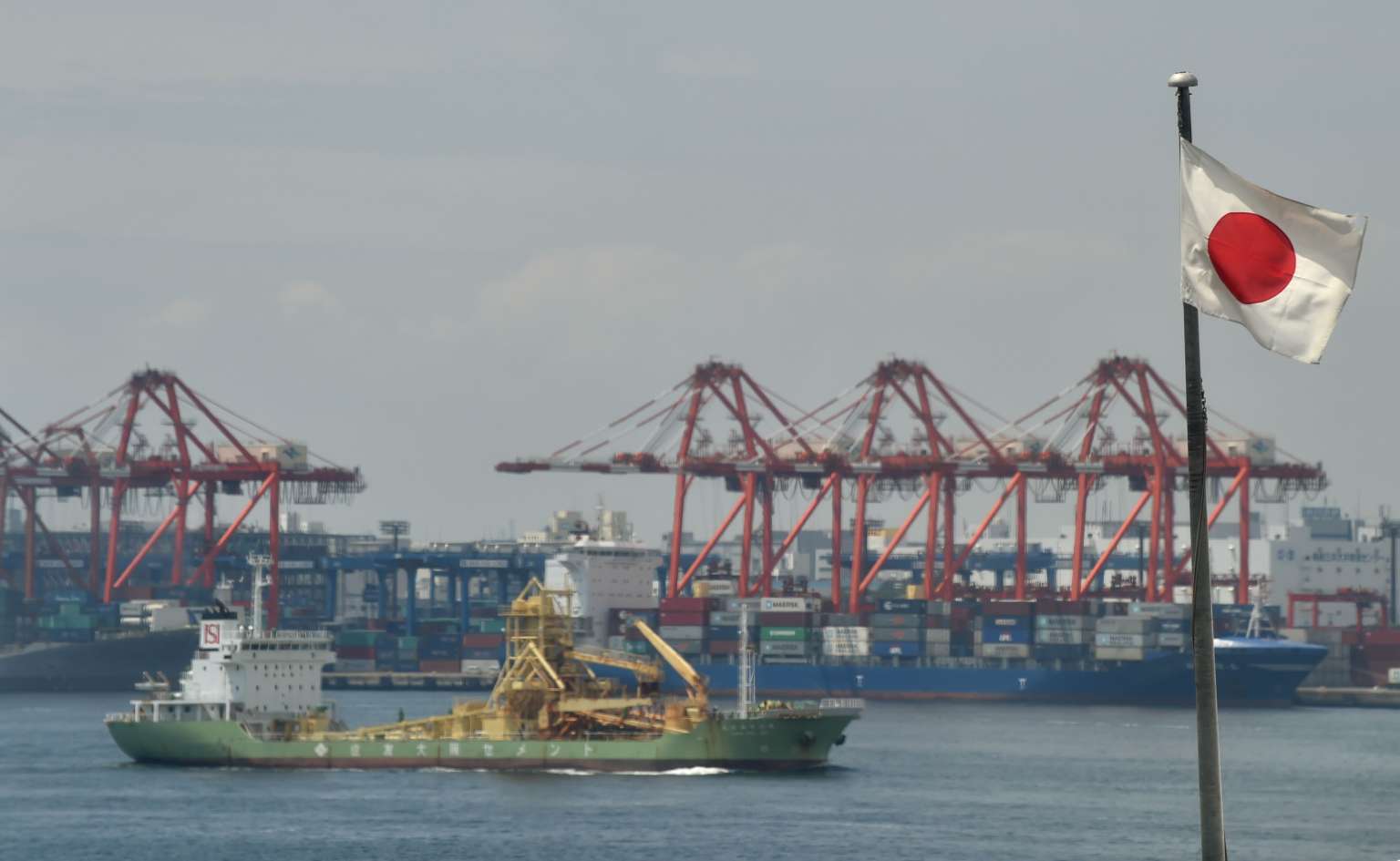Japan reconstruction minister urges lifting of ban on food imports from disaster-hit areas
Sign up now: Get insights on Asia's fast-moving developments

A 2016 file photo shows the Japanese national flag at a cargo terminal area of Tokyo port.
PHOTO: AFP
TOKYO - It is "irrational" to restrict the import of Japanese food products that are sold on the market, reconstruction minister Masahiro Imamura said on Wednesday (Feb 22) as he lobbied countries and regions to lift their food bans on imports from the disaster-hit regions.
Speaking to the foreign media ahead of the sixth anniversary of the Great East Japan Earthquake, he stressed: "Japan carries out an inspection of radioactive substances according to the world's strictest level of standard limits based on scientific evidence.
"Only foods that have passed the inspection are circulated on the market. Of course, exported foods are subject to the same strict inspection process."
On March 11, 2011, a 9.0-magnitude earthquake struck under the Pacific Ocean at 2.46pm local time (1.46pm in Singapore), triggering a 10m wall of water that ravaged the north-east Japanese coast. It crippled the Fukushima No. 1 power station, causing meltdowns in three of its reactors.
It also led to food import restrictions overseas, though Mr Imamura noted - without singling out any country - that 21 countries have lifted the bans while many countries and regions have "significantly relaxed" the restrictions.
Singapore's Agri-Food and Veterinary Authority (AVA) said last year it was reviewing the restrictions, and that it "will adopt a science-based approach in its assessment, with food safety for Singaporeans as the key priority".
Seafood, forest and agricultural produce from areas in Fukushima near the nuclear power plant cannot be imported. Pre-export tests are still needed for seafood and products from the forests of Ibaraki, Tochigi and Gunma, such as berries and boar meat.
Over in Taiwan, a public hearing over whether the territory should ease its ban last December (2016) was scuppered by rioting.
Mr Imamura noted that Japanese standards, which specify general foods containing radioactive substances of 100 becquerel (Bq) or higher per 1 kg should not be sold, "are extremely strict compared to those in the European Union or the United States, or the international Codex standard".
He added: "Last year, no rice, vegetables and fruits, livestock products, cultivated mushrooms, or seafood products grown in Fukushima prefecture were detected to have exceeded standard limits."
He added that inspections on rice grown in Fukushima prefecture are done for "all bags of rice, not only samples", and that in 2015 and 2016, no bags of rice exceeded the standard limit.
As for seafood, no items have exceeded the standard limits since April 2015, he said.
"It is irrational to restrict the import of Japanese food products that are sold on the market, which have passed very strict inspection," he said. "We would like the authorities in each country and region to see these scientific and obejctive facts."
waltsim@sph.com.sg


